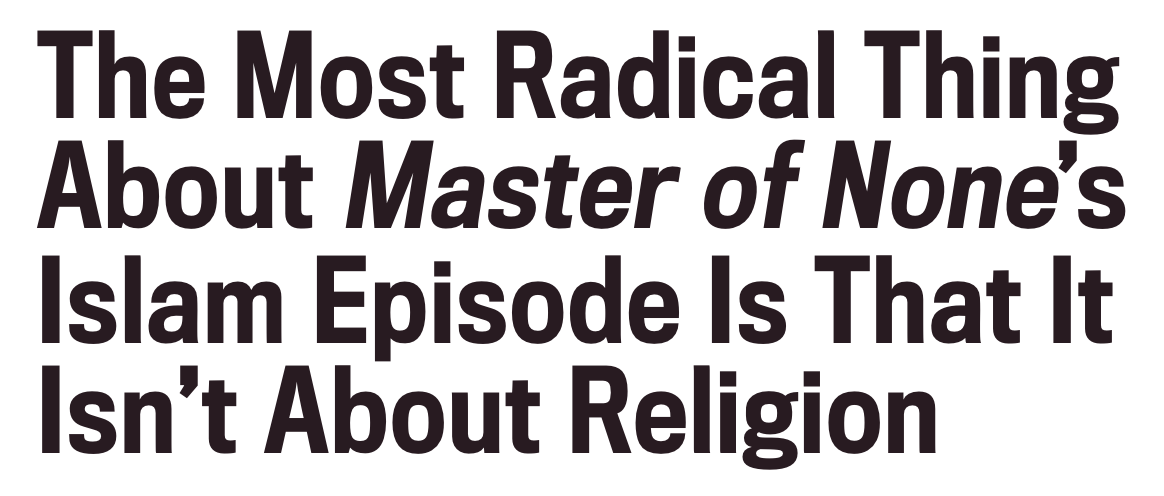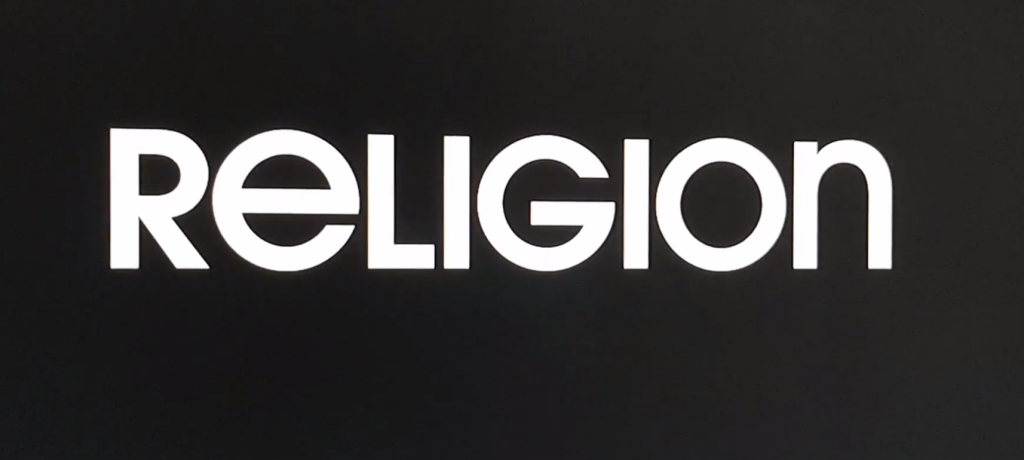
If you’re watching the Netflix series Master of None (starring the comedian Aziz Ansari), or if you’re a scholar of religion on social media much, then you may know about season two’s episode entitled Religion.
It’s being heralded as groundbreaking — the most honest portrayal of Islam on TV — for it’s all about parents and kids, kids either disappointing or not disappointing their parents, and thus kids growing up and trying to figure out who they are. Here, Islam is something ordinary. For, as one writer put it (in an article whose title appears in the pic at the top of this post):
 As such, and despite its title, the episode isn’t really about religion.
As such, and despite its title, the episode isn’t really about religion.
What’s interesting about all this, though, is that there’s plenty of scholars of who would agree — but who would press it even further: religion is never about religion. For the claims, practices, and institutions that many of us commonly call (and thereby set apart as) religion or religious or spiritual, etc., can, at least for them, always be understood to function psychologically, socially, economically, or politically in mundane (but, sure, still fascinating) ways.
All the way down.
With no sacred remainder.
Yet taking it that far is likely just a little too far for many of those commenting on Master of None’s religion episode.
So what’s curious here is that, to some degree of another, the comments on the episode make plain that everyone is a theorist of religion and, although they might not phrase it this way, everyone is prepared to entertain that explanatory, reductive analysis is appropriate when it comes to religion — at least some of the time. The curious thing, then, is how that instinctive tendency to theorize gets managed: when it is invoked and when it is not, and when a participant’s self-understanding wins the day and when it is open to analysis.
For most would agree: sometimes it’s not about the pork.
So when are the things we call religion mundane and when are they not?
I agree that, especially in the US, pop culture and media portrayals of Islam have long been connected to a stereotype that conveys a sense of impending danger to the viewer (a caricature that, as the late Edward Said argued some time ago, goes back far before it ever landed in the US, of course). And I agree that this connection can, and does, have real world implications — just consider the recent stabbing in Portland — so that’s not at issue here. Instead, the issue is the popularization of theory, even the commonsense manner in which we all see things that we sometimes hold apart from everyday life (as sacred, as special, as self-evident, as privileged, as uniquely meaningful, etc.) as, instead, deeply involved in the humdrum everyday lives we live — like how we, regardless who we are, do or don’t live up to our parents’ hopes and dreams.
So what I think is worth reflecting on in these commentaries (and yes, I watch the series and enjoy it quite a bit) is how they evidence not just the importance or utility of theory to help us understand the world but also how they demonstrate the strategic effect of theory — an effect that, depending on your interests, might need to be managed, since it might sometimes come a little too close to home.
This post is reposted from Culture on the Edge.
